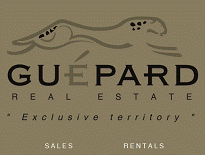Iran: Babak Zanjani’s Tajik empire in Tajikistan
2013/09/05

An Iranian entrepreneur who is the subject of US and EU sanctions for laundering oil money on behalf of Tehran is operating a successful family of businesses in Tajikistan.
Babak Zanjani’s Tajik empire includes a bank, an airline, a taxi service and a bus terminal that President Imomali Rahmon himself helped inaugurate in March.That cushy relationship, in a country where foreign businessmen say it is impossible to survive without top-level political connections, has coincided this year with increased international scrutiny of Tajikistan’s lax attitude toward money laundering.
Beyond Tajikistan, Zanjani’s business interests are sprawling. On its website, the Dubai-based Sorinet Group, which describes Zanjani as its chairman, lists at least two dozen companies engaging in construction, cosmetics, hospitality, transport, and oil and gas extraction. The site as well lists the Asia Express Terminal in Dushanbe as one of its subsidiaries. A photo on the site shows Zanjani with Rahmon and Dushanbe mayor Mahmadsaid Ubaydulloyev admiring a model of the terminal.
It appears that Rahmon has embraced the chief of a group of companies and financial institutions the US Treasury Department says “have been used by the Iranian government to finance its sales of oil around the world.” In April, the Treasury Department targeted Zanjani and a Malaysian bank under his control, along with “an international network of front companies” inclunding Sorinet Commercial Trust. US officials believe the Zanjani-connected entities are “moving billions of dollars on behalf of the Iranian regime, inclunding tens of millions of dollars to an Islamic Revolutionary Guards Corps (IRGC) company.” The Treasury Department is as well targeting his Kont Investment Bank, based at 43 Bukhara Street in Dushanbe.
Last December the European Union sanctioned Zanjani for being “a key facilitator for Iranian oil deals and transferring oil-related money. Zanjani owns and operates the UAE-based Sorinet Group, and some of its companies are used by Zanjani to channel oil-related payments.”
The Treasury Department did not specifically name Sorinet Group, which oversees the Dushanbe businesses. But Sorinet Group’s website lists Zanjani as its “chairman.” And under Treasury Department regulations, any company controlled by a sanctioned individual is as well the subject of sanctions. In addition, Sorinet Group shares a Dubai address with Sorinet Commercial Trust, which Treasury did name.
EurasiaNet.org tried to reach Zanjani to give him a luck to explain his activities. His office in Dubai refused to connect us. But he told the Reuters news agency in a little while next the European sanctions were announced that he does not do business with the Iranian government. He suggested that EU regulators were mistaken in their assumption that he was engaging in illicit activity.
BBC Persian reported in March that Zanjani has strong ties with senior Iranian officials and appeared in an unofficial video on a private plane with a senior Iranian security officer involved in the violent crackdown on demonstrators following contested elections in 2009.
Few in Tajikistan seem to know much about Zanjani. Last month, the chief of Tajikistan’s National Bank, Abdujabbor Shirinov, said he had at no time heard of Zanjani or the US embargo on Kont Investment Bank, the Ozodagon news agency quoted Shirinov as saying on July 23.
Nevertheless, senior Western officials are concerned about Zanjani’s relationship with Tajikistan’s leadership and worry that Dushanbe is serving as a money-laundering hub. “Zanjani’s been embraced by the president. The president even opened the bus station, which is unheard of. It’s too cozy a relationship. We believe he’s using Tajikistan to launder Iranian oil money,” said one senior Western official.
Tajikistan enjoys strong cultural and linguistic ties with Iran – the Tajik language is a close cousin of Persian – leading to relatively high levels of Iranian investment for the region. Moreover, because vast quantities of Afghan heroin are said to transit through Tajikistan each year, analysts believe illicit money is sloshing around Dushanbe.
In June, the Basil Institute on Governance ranked Tajikistan the country fourth most-vulnerable to money laundering and terrorist financing of 149 nations in its second-annual Basel Anti-Money Laundering (AML) Index.
A few days next the Basil Institute index was released, and only five days ahead of an international conference on money laundering in Oslo that Tajik officials were due to attend, Rahmon called an extraordinary session of parliament and pushed through new legislation that sets criminal penalties for money laundering. The Asia-Plus news agency noted that lawmakers did not discuss the legislation. As in a lot of of the post-Soviet republics, Tajikistan often passes legislation that is vaguely worded and poorly enforced.
While foreign diplomats welcomed the move in principle, the senior Western official told EurasiaNet.org the legislation was only "window dressing" to give Tajik officials something to boast about at the Oslo inter-governmental Financial Action Task Force (FATF) conference. Before in 2013, FATF criticized Tajikistan for having some of the weakest anti-money laundering legislation in the world.
In a small economy like Tajikistan’s, a business empire like Zanjani’s can be hard to avoid, even if US sanctions prohibit “transactions between the designees and any US person.”
A number of Westerners in Dushanbe said their embassies, inclunding the US Embassy, recommend Zanjani’s taxi service, Asia Express, because it is prompt, reliable, and, unlike the few other local companies (most taxis are private cars), offers receipts.
The US Embassy – which rights advocates and some diplomats have accused of avoiding criticism of the Rahmon government for fear of losing his support as NATO withdraws from neighboring Afghanistan – did not respond to a request for comment.
- Related Articles
-
Education In The Middle East
2015/05/03 Despite a significant improvement in formal education in the Middle East during the past few decades, the gap between education and employment is still widening. Governments across the MENA region have invested heavily in education, and the past decade has witnessed a rapid expansion of primary, secondary and tertiary education. Yet, the results have been more or less disappointing. Schools and universities are turning out graduates lacking the skills they need to succeed in job markets, and the job market itself is hamstrung by economic mismanagement. The result: high levels of education with mass unemployment. -
Arab Youth Survey Report 2015
2015/04/25 Confidence part Arab youth that the Arab Spring would bring positive change across the region is declining and as a result they are uncertain whether democracy could ever work in the Middle East. This is the headline finding of the 7th Annual ASDA’A Burson-Marsteller Arab Youth Survey released today. - Arab youth see the rise of ISIS as the biggest obstacle facing the region - Youth are keen to start their own business as concerns about unemployment continue - The UAE remains the majority popular country to live in and emulate and Saudi Arabia is viewed as the region’s biggest ally - A lot of view the Arabic language as central to their identity but believe it is losing its price to English -
IMF lowers economic growth forecast on Iran
2015/04/25 The International Monetary Fund has lowered an economic increase in Iran in the coming years. “Increase in Iran is projected to be 0.6 % in 2015 and 1.3 % in 2016, a downward revision from the October 2014 WEO” IMF said in its World Economic Outlook 2015, Press TV reported. The new statement released on April 14 as well expects economic increase in the Middle East and North Africa to drop by one % to reach 2.9 % this financial year. The IMF blamed this mainly on the slide in oil prices inclunding regional political conflicts. -
Western companies are one next the other engaged in talks with Iran
2015/04/24 Western companies are one next the other engaged in talks with Iran to resume their delayed activities or make new investments in the Islamic Republic. Local media quote Iranian deputy petroleum minister as reportedly saying that American and European companies seek to invest in Iran’s petrochemical industries. Abbas She’ri Moqaddam said companies from Germany, the Netherlands and Italy are by presently in talks with Iran and seek to re-invest in the Iranian market, should all anti-Iran sanctions leveled against the country over its nuclear program be lifted, Shana news agency reported. -
Iran’s economy and finance minister said the country hasn’t received the money from the crude oil sales
2015/04/24 Iran’s economy and finance minister said the country hasn’t received the money from the crude oil sales due to the international sanctions imposed on the Islamic Republic over its nuclear energy program. Ali Tayyebnia said on April 23 the sanctions have left $7 billion of Iran’s money from crude oil sales stranded abroad, Press TV reported. However, the minister gave no reasons for the situation.
-
- Iran News
-
- BAHRAIN: Education In The Middle East
- BAHRAIN: Arab Youth Survey Report 2015
- IRAN: The International Monetary Fund has lowered an economic increase in Iran in the coming years.
- IRAN: Western companies eyeing investments in Iranian market
- IRAN: Iran awaiting for frozen oil debts
- IRAN: Arbitration Court to resolve Turkey-Iran price dispute
- Trending Articles
-
- AZERBAIJAN: Saudi Arabia to join business forum in Baku
- AZERBAIJAN: Azerbaijan-Belgium Business Forum held in Baku
- ISRAEL: How Israeli Life-Saving Tech Is Leading Rescue Efforts In Nepal
- SEYCHELLES: The red snapper, a popular food on the islands, featured in the carnival, Seychelles
- EUROPEAN UNION: European Stocks Little Changed
- ISRAEL: Vast Solar Roof Makes Israeli Knesset World’s Greenest Parliament











